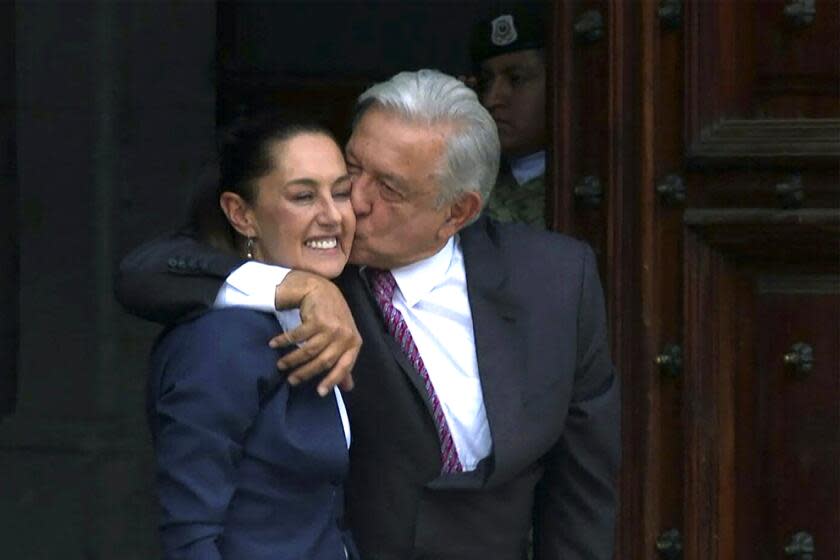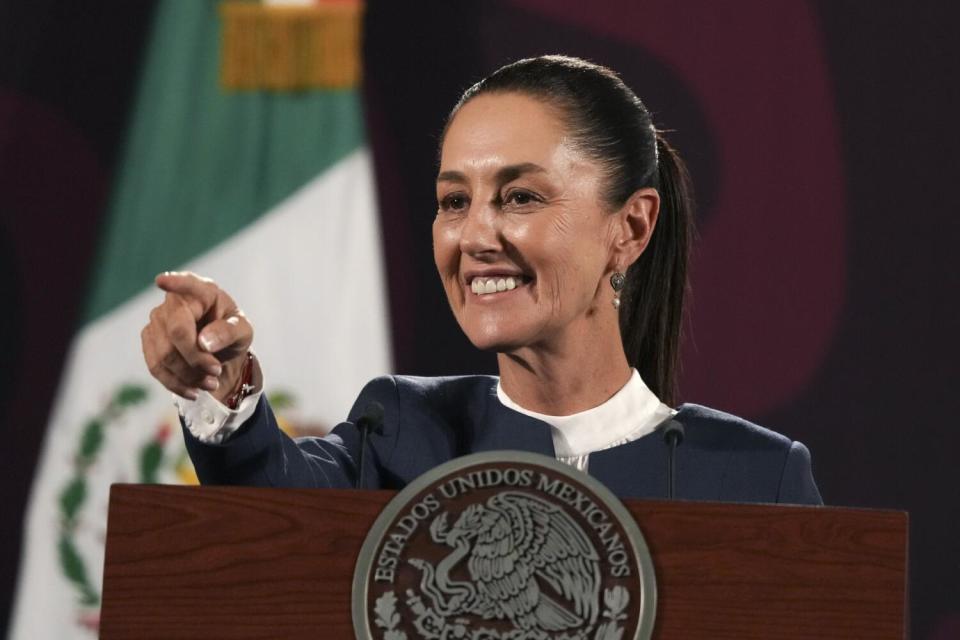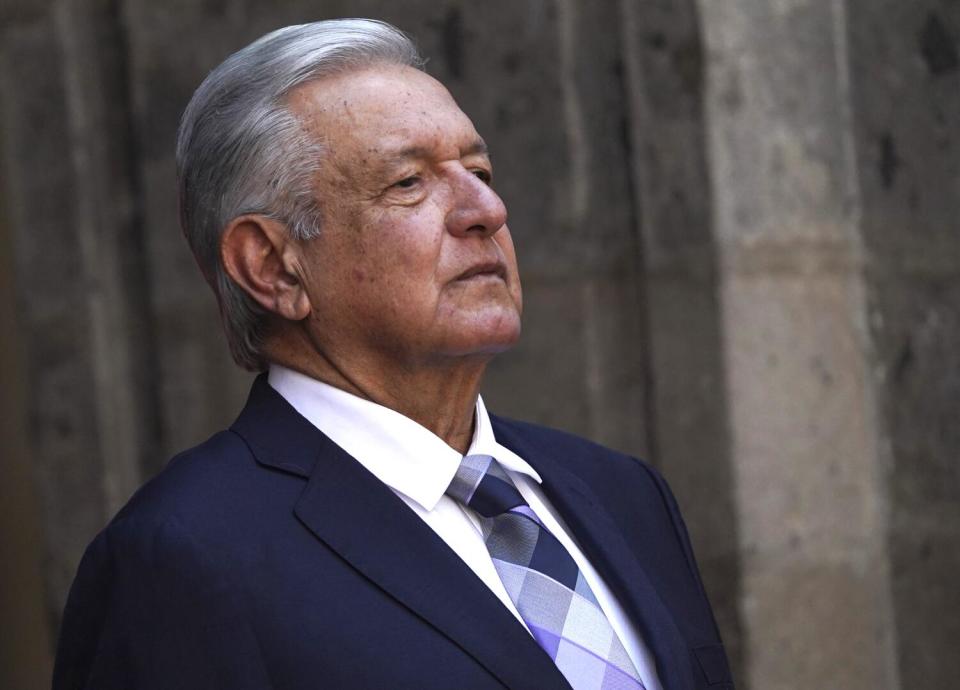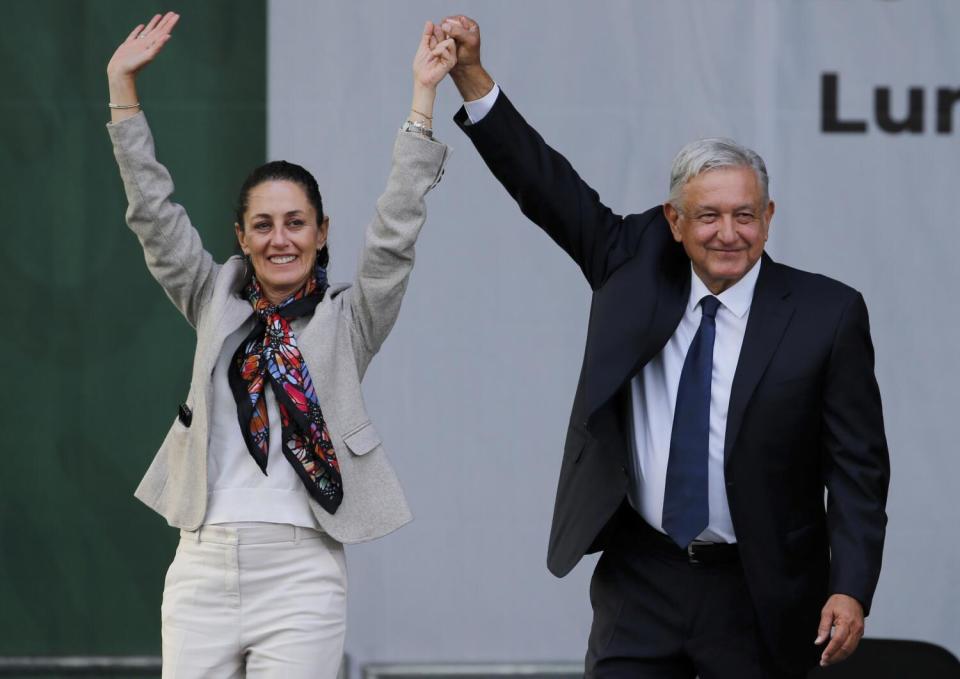How independent will Mexico's next president be? This controversy gives a hint

When Claudia Sheinbaum won election in a landslide this month to become Mexico's next leader, many wondered how independent she would be from her mentor and predecessor, President Andrés Manuel López Obrador.
So far, the answer seems to be not very.
This week Sheinbaum threw her weight behind one of López Obrador's most controversial proposals, a sweeping overhaul of the judicial system under which all federal judges, including members of the Supreme Court, would be elected by popular vote.
The plan, which critics say would politicize the judiciary and give even more power to the ruling Morena party, has spooked markets, with the peso registering its steepest weekly decline against the dollar since 2020.

López Obrador first proposed the reform in February, after several of his most sought-after initiatives, including major changes to the country's elections institute, were hamstrung by Supreme Court rulings. He derided the judges on the nation's highest court as being part of a "power mafia" and said they and other members of the judiciary should be elected just like the president or senators.
For months, the plan appeared dead in the water because his party didn't have the votes needed in Congress to make the necessary changes in the constitution.
Read more: She's likely to be Mexico's next president. Can she save the country from cartel violence?
That changed this month with Morena's resounding victory in nationwide elections that were widely viewed as a referendum on López Obrador's six-year term in office.
Sheinbaum, the former mayor of Mexico City and López Obrador's political protege, beat her nearest competitor by a margin of 32 points. By the time she is sworn in as president on Oct. 1, Morena's coalition will have a supermajority in the Chamber of Deputies and a simple majority in the Senate. It will control 24 of 32 governorships and boast supermajorities in at least 21 of the 32 state legislatures. The new Congress takes office Sept. 1.

Despite his lame-duck status, López Obrador announced shortly after the election that he would take advantage of Morena's domination of the new legislature to try to push through the judicial reform before he leaves office. That resulted in the peso losing at least 8% of its value against the dollar.
Sheinbaum, in an effort to calm fears, said early in the week that she supported a series of public forums to debate the reform. “Let there be a very broad discussion throughout the country,” she said.
But on Thursday, she declared that the core of the proposal — that judges be chosen by popular vote — would not change. "My opinion is that judges should be elected,” she said.
Read more: Mexico’s military gains power as president turns from critic to partner
Carlos Bravo Regidor, a professor at the Center for Economic Research and Teaching in Mexico City, said the fact that López Obrador was still dictating the national conversation even though he's on his way out is an indicator of how he'll continue to be involved.
López Obrador has repeatedly vowed to retire from political life. "But he is signaling that he's not really going to go away," Bravo said.
López Obrador registered Morena as a political party only a decade ago, and it has been largely shaped by his whims and leftist political philosophy. Sheinbaum is aware that she partly owes her career to López Obrador, who plucked the trained climate scientist from academic obscurity to serve as environmental minister of Mexico City years ago.
"She's really fenced in," Bravo said.

Critics say the reforms would fundamentally alter the balance of power in Mexico by removing vital checks and balances.
An analysis of the reform carried out by the Inter-American Dialogue, the Stanford Law School Rule of Law Impact Lab and the Mexican Bar Assn. found that the proposals, if approved, "would undermine the foundation of the rule of law in Mexico."
"These proposals constitute a direct threat to judicial independence," it said. "They violate international legal standards on the independence, impartiality, and competence of the judiciary."
Along with changing how judges are chosen, the reform would also reduce their terms, peg their salaries to those of the executive branch and create a judicial disciplinary tribunal whose members are elected by popular vote for terms that coincide with the six-year presidential term.
Most sitting judges, including those on the Supreme Court, would have to conclude their term when newly elected judges were sworn in.
Javier Martin Reyes, a law professor at the National Autonomous University of Mexico, described the reform as López Obrador's effort to purge the judiciary of potential roadblocks to Morena initiatives.
"The only power that they do not control in Mexico is the judiciary," he said. "This is a weapon to capture this last institutional counterweight."
Cecilia Sánchez Vidal in The Times' Mexico City bureau contributed to this report.
This story originally appeared in Los Angeles Times.


